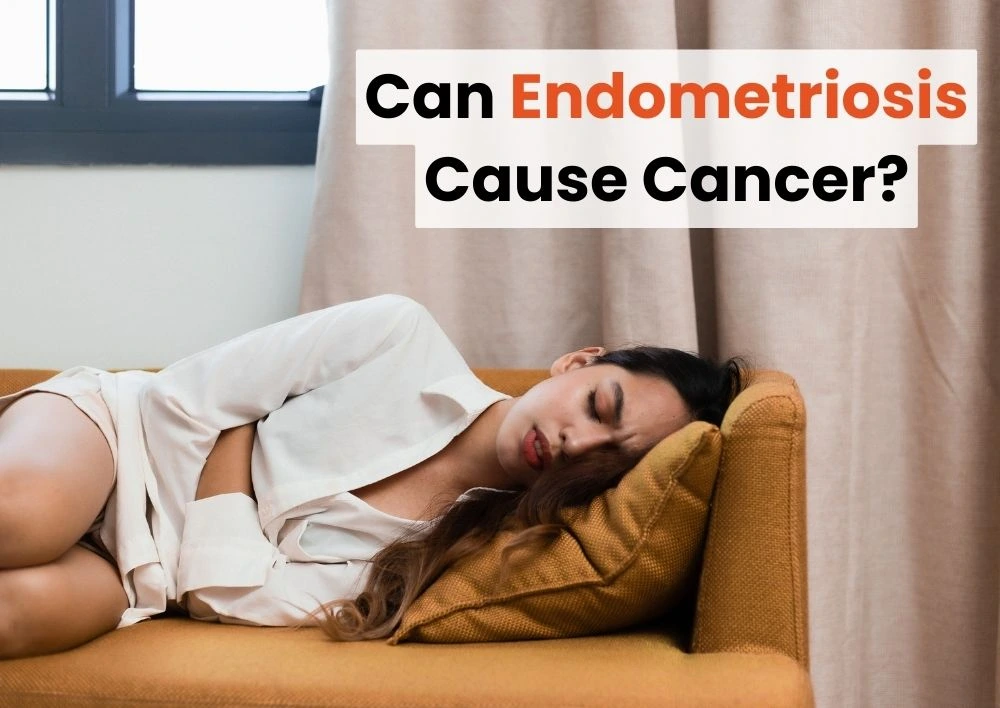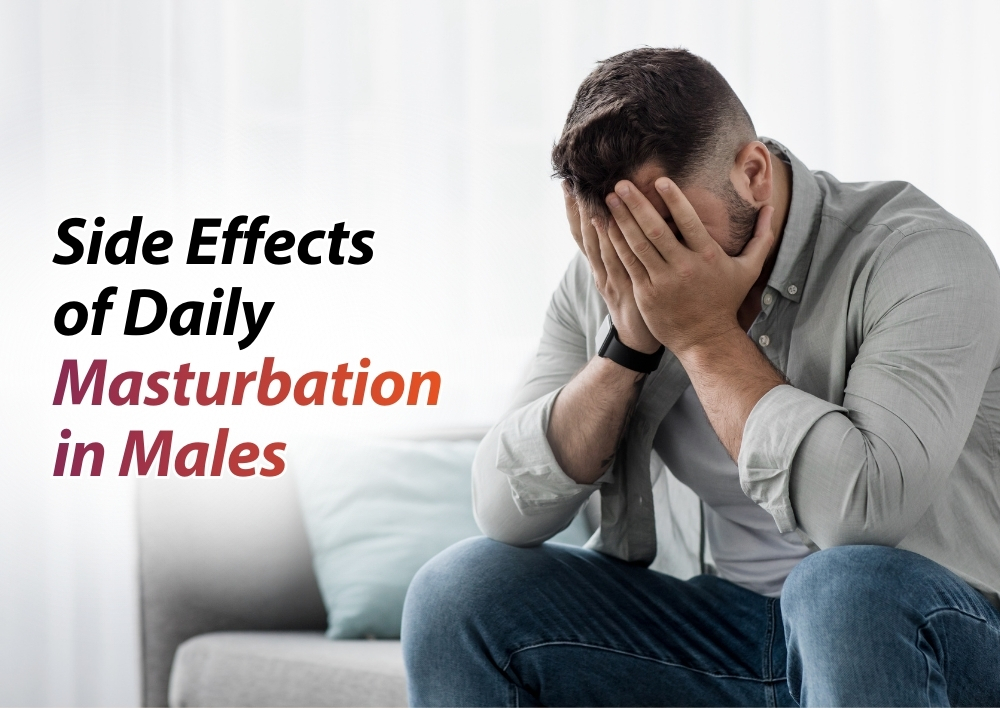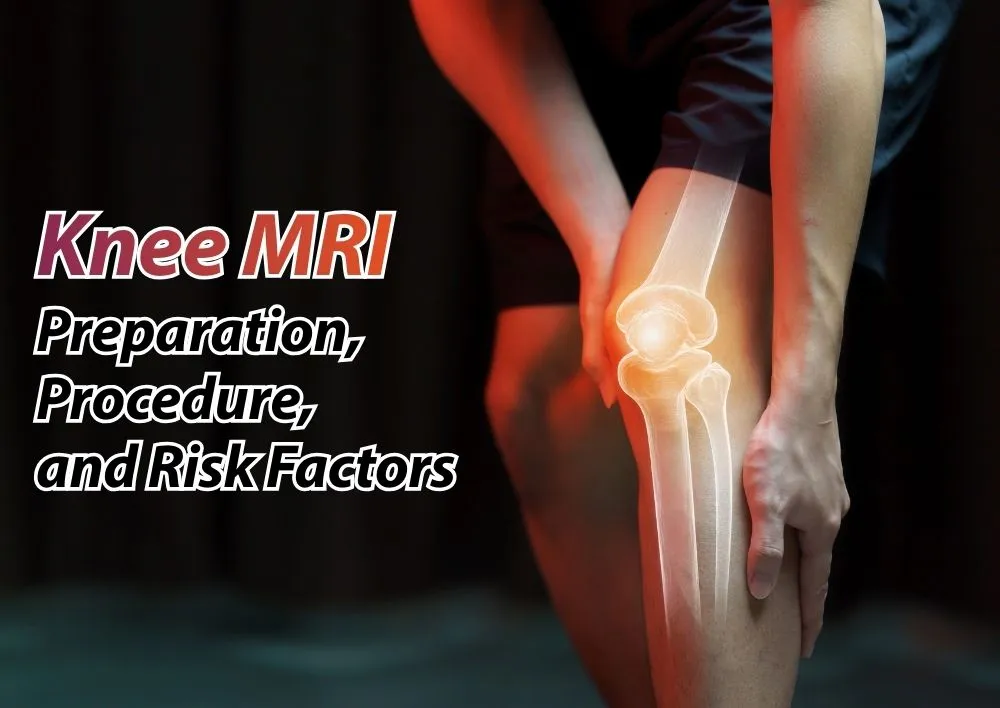Can Endometriosis Cause Cancer?
Endometriosis can feel like a silent struggle for millions of women that affects millions of women worldwide. Research shows that endometriosis affects 247 million women globally, including 42 million in India. Women with endometriosis experience chronic pelvic pain, heavy periods, and fertility issues. But beyond these regular symptoms, a bigger concern often arises in the minds of many women: "Can endometriosis cause cancer?" This question can cause anxiety, but the answer isn't as simple as yes or no. In this blog post, we will explore this topic in depth to understand whether there’s a real connection between endometriosis and cancer.
What is Endometriosis?
According to the best infertility specialist in gurgaon at Miracles Fertility & IVF clinic, Endometriosis is a condition in which the tissue that normally lines the inside of the uterus grows outside of it. This tissue can be found on the ovaries, fallopian tubes, the outer surface of the uterus, or even on the bladder and intestines. Just like the tissue inside the uterus, this misplaced endometrial tissue thickens, breaks down, and bleeds with each menstrual cycle, leading to inflammation and scar tissue formation.
Studies show that endometriosis affects about 10-15% of women of reproductive age and 70% of women with chronic pelvic pain. Its symptoms, such as severe pelvic pain and abnormal bleeding, can significantly impact a woman's quality of life. Many women also experience fatigue, gastrointestinal issues, and emotional distress, which can add to the overall burden of living with this condition. However, what concerns many women is whether this chronic condition could be linked to cancer.
Understanding the Connection Between Endometriosis and Cancer
Let’s be clear that endometriosis is not cancer. However, researchers have been looking into whether endometriosis can cause cancers like endometrial cancer and breast cancer. Although there isn’t a definite answer yet, studies suggest that women with endometriosis may have a higher risk of endometriosis cancer, breast cancer, ovarian cancer, and a few other types of cancer.
Here’s what we know so far about the relationship between endometriosis and cancer:
-
Endometriosis and Ovarian Cancer: One of the most studied connections between endometriosis and cancer is the risk of ovarian cancer. While ovarian cancer is relatively rare, women with endometriosis have been found to have a slightly higher risk of developing this type of cancer compared to the general population. Study shows that the risk is still low only about 1.9% of women with endometriosis will develop ovarian cancer in their lifetime. Two specific types of ovarian cancer have been linked to endometriosis: endometrioid carcinoma and clear cell carcinoma. These cancers are less common than the typical forms of ovarian cancer but occur more frequently in women with a history of endometriosis.
-
Endometriosis and Endometrial Cancer: Despite what the name suggests, there isn’t a strong connection between endometriosis and endometrial cancer. Endometrial cancer is one of the most common types of gynecologic cancer, affecting the lining of the uterus. However, having endometriosis does not necessarily cause endometrial cancer.
-
Endometriosis and Other Cancers: Aside from ovarian cancer, researchers have also looked into whether endometriosis could increase the risk of other cancers, such as breast cancer, colorectal cancer, and non-Hodgkin lymphoma. Some studies suggest there may be a slightly elevated risk of these cancers in women with endometriosis.
Why Might Endometriosis Be Linked to Cancer?
The connection between endometriosis and cancer is still being researched, but several theories could explain why women with endometriosis might have a higher risk of developing cancer:
-
Chronic Inflammation: Endometriosis leads to chronic inflammation in the pelvic region. Over time, inflammation can cause damage to cells, and damaged cells are more likely to become cancerous. This theory is supported by the fact that other conditions that cause chronic inflammation, such as Crohn’s disease, are also linked to a higher risk of cancer.
-
Genetic Factors: There may be genetic factors that link endometriosis and cancer. Some women may inherit genes that not only predispose them to endometriosis but also to certain types of cancer.
-
Hormonal Factors: Endometriosis is a hormone-driven condition, especially related to estrogen. Estrogen also plays a role in the development of certain cancers, such as ovarian and breast cancer. This hormonal connection shows that women with endometriosis are at a slightly higher risk for these cancers.
-
Endometrial Cells Outside the Uterus: In females with endometriosis, endometrial-like cells grow outside the uterus. These abnormal growths could potentially become cancerous over time, especially in the ovaries, where endometrial tissue often spreads.
How Can You Reduce Your Risk of Cancer?
If you have endometriosis, there are steps you can take to help lower your risk of cancer:
-
Regular Monitoring: If you have endometriosis, it’s important to have regular check-ups with your gynecologist. While the risk of cancer is low, early detection is key. Regular pelvic exams, ultrasounds, and, in some cases, CA-125 blood tests can help monitor for any suspicious changes.
-
Consider Hormonal Treatments: Since estrogen plays a role in both endometriosis and some cancers, hormonal treatments that reduce estrogen levels may help lower your cancer risk. These treatments can also help manage endometriosis symptoms.
-
Surgery in Severe Cases: In severe cases of endometriosis, doctors may recommend surgery to remove endometrial tissue or, in some cases, a hysterectomy. While surgery is usually a last resort, it may reduce the risk of cancer by removing the abnormal tissue that could potentially become cancerous.
-
Healthy Lifestyle Choices: Maintaining a healthy lifestyle can also help lower your risk of cancer. Eating a well-balanced diet rich in fruits and vegetables, exercising regularly, and avoiding smoking can all contribute to better overall health and reduce your cancer risk.
Conclusion:
The connection between endometriosis and cancer is complex. While women with endometriosis may face a slightly higher risk of developing ovarian cancer, breast cancer, and other types, the key to managing your health lies in regular monitoring, early detection, and making informed decisions with your doctor. If you suspect you have endometriosis or are experiencing related symptoms, don’t hesitate to seek help from a fertility specialist near you. Empowering yourself with knowledge and support is crucial in navigating the challenges of this condition.
If you have any questions or need further assistance, don’t hesitate to reach out to us at Miracles Healthcare for support on your journey to better health.










_Causes,_Symptoms_Effective_Management_Tips.webp)





Was the information useful?
0 0